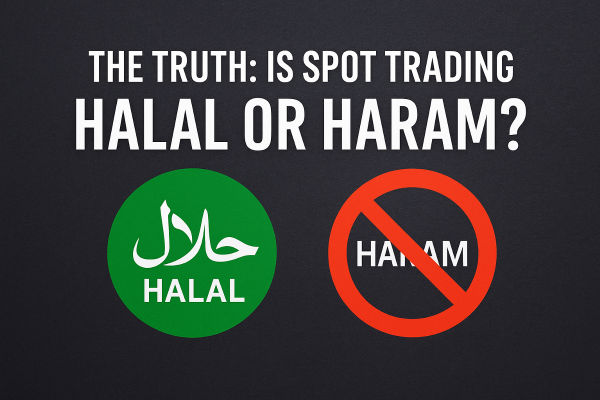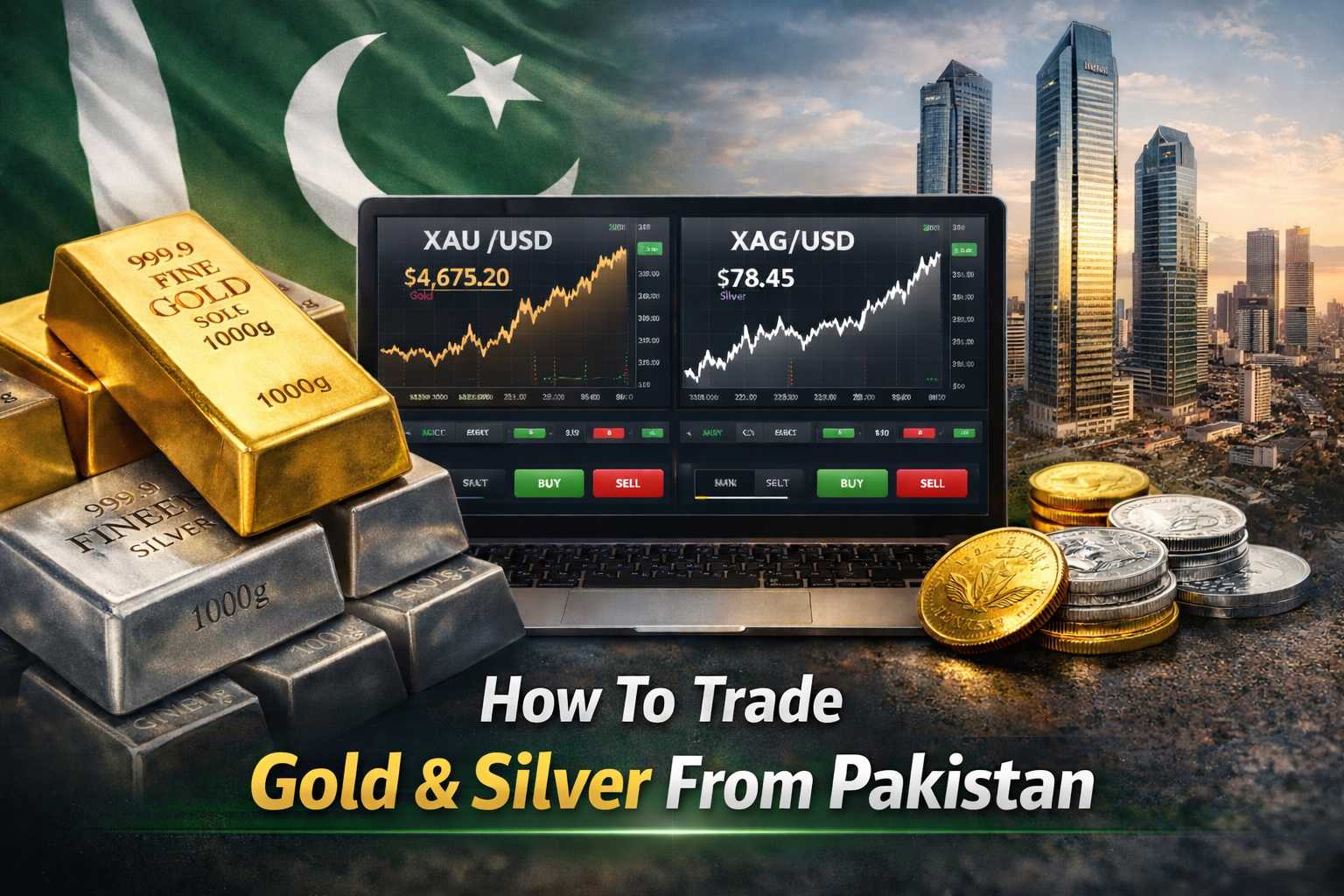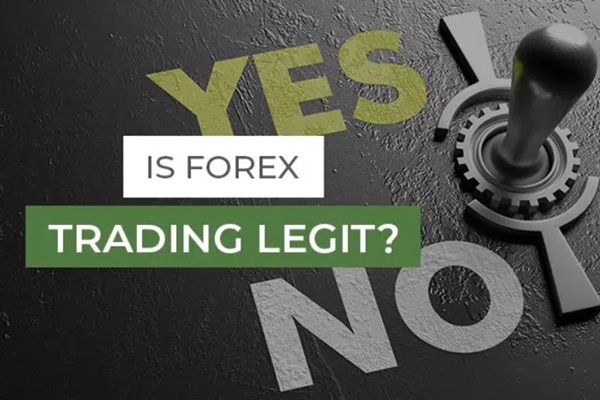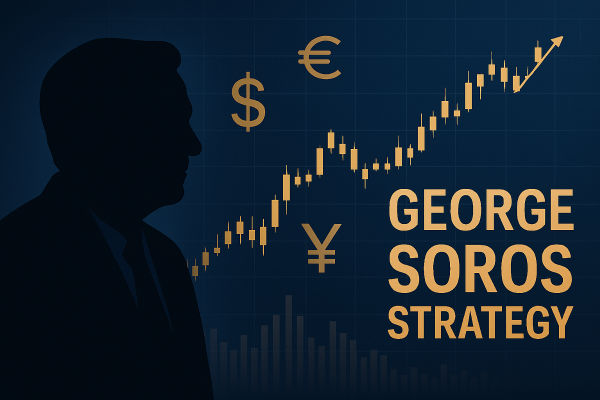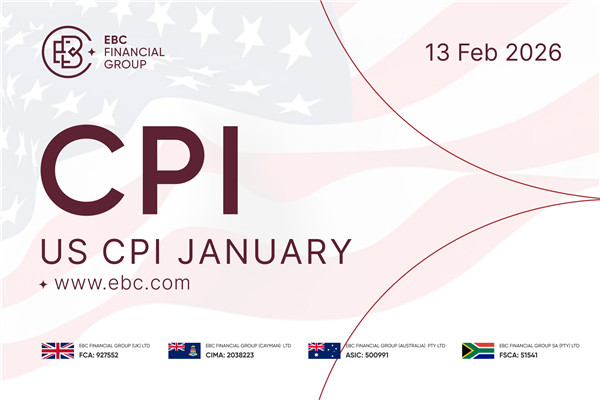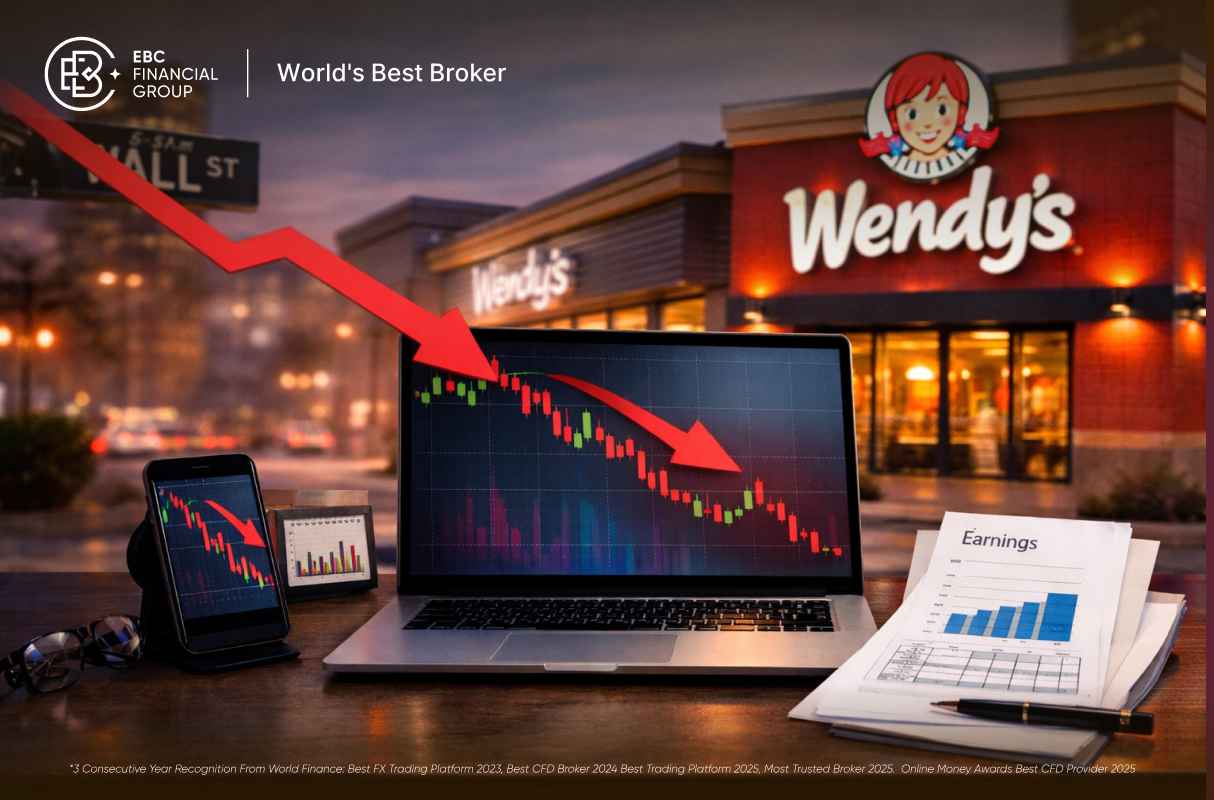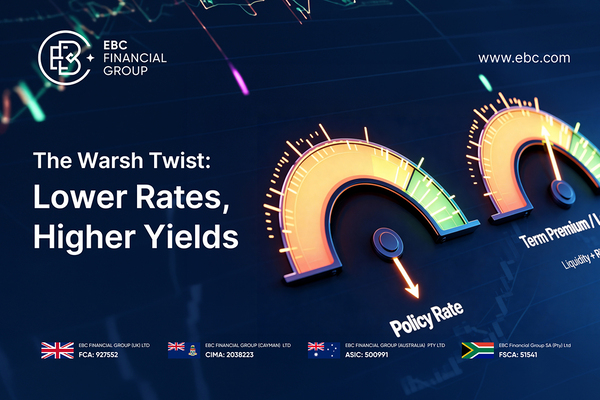Some investments are clear, flowing in one direction. Others resemble powerful rivers, full of opportunity but requiring caution. Spot trading falls into the latter group, offering immediacy and opportunity while raising questions about compliance with ethical and spiritual principles.
For Muslim investors, the question is spot trading halal or haram goes far beyond profit and loss. It touches on matters of faith, discipline, and conscience. Islam requires financial activities to avoid riba (interest), gharar (excessive uncertainty), and maysir (gambling). Spot trading is fast and global, creating both opportunity and risk. Determining if it is permissible demands a look at how it works, how Shariah scholars interpret it, and how regulators create frameworks to support compliant activity.
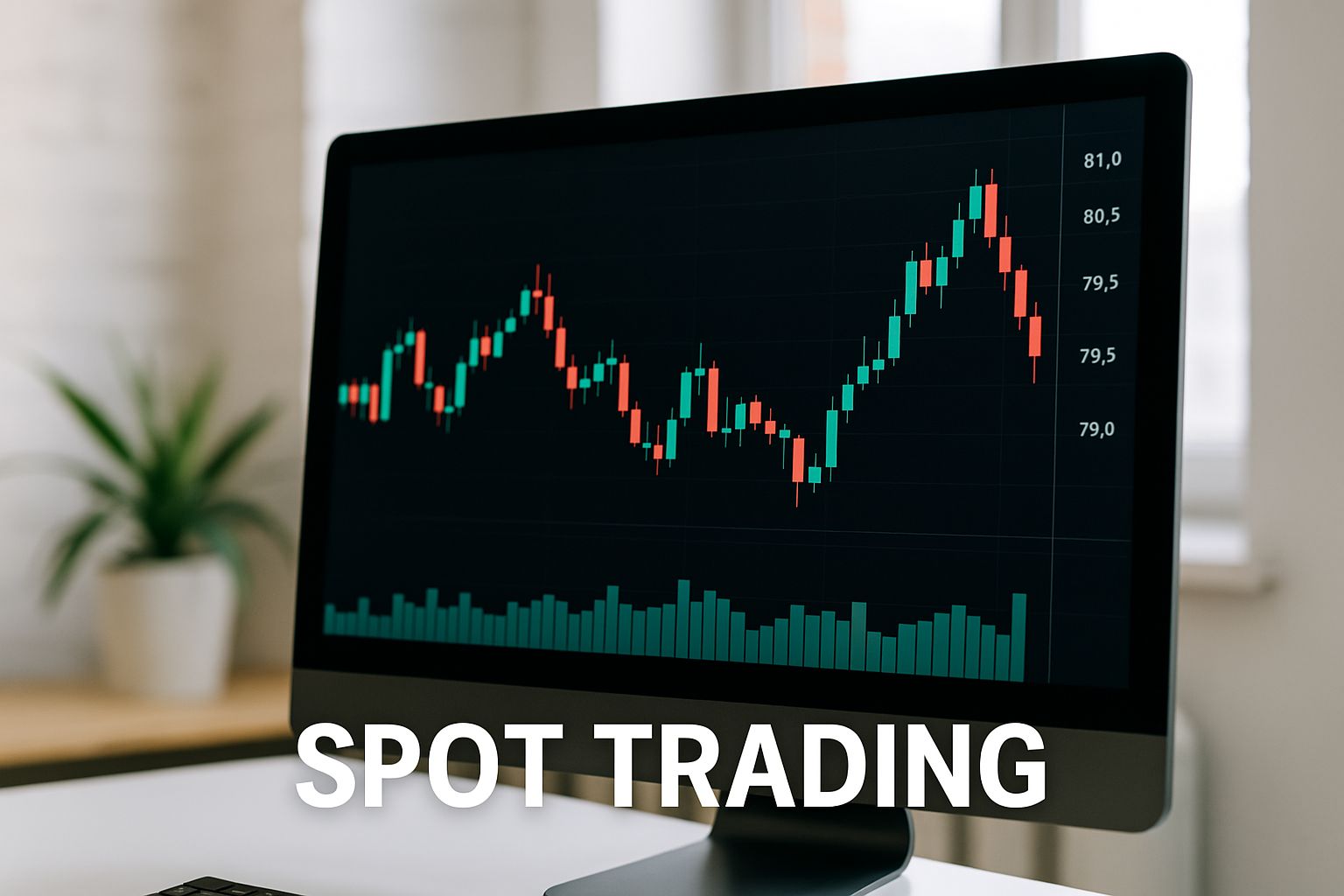
Understanding Spot Trading
Spot trading refers to buying or selling a financial instrument for immediate delivery. The word “spot” means settlement happens “on the spot,” usually within two business days under global standards. This applies to several assets:
Commodities: Gold, silver, and oil traded for near-immediate delivery.
Equities: Stocks purchased for cash settlement through exchanges.
Unlike derivatives such as futures or options, spot transactions involve direct ownership of the asset. This distinction is critical in Islamic finance, because ownership and delivery are essential requirements for permissibility.
Shariah Principles Relevant to Spot Trading
When asking is spot trading halal or haram, several Islamic legal principles come into play:
Riba (Interest): Islam prohibits earning or paying interest. Spot trading avoids this if there are no overnight financing fees, such as swaps in forex.
Gharar (Uncertainty): Excessive uncertainty in contracts is forbidden. Spot trading reduces gharar by ensuring that price, quantity, and settlement date are agreed upfront.
Maysir (Gambling): Transactions resembling gambling are haram. Excessive speculation in spot markets, where trades are based only on chance rather than analysis, risks falling into this category.
Hand-to-Hand Exchange: For ribawi items like gold and currency, exchange must be immediate. Digital settlement through modern banking is generally accepted by scholars as fulfilling this requirement.
By these standards, spot trading can be halal if structured carefully. The dividing line is not the act of trading itself, but whether the conditions of the trade respect Islamic values.
How Scholars Interpret Spot Trading
Islamic scholars have debated modern trading practices for decades. On spot markets, the consensus leans toward permissibility when certain safeguards are respected. The Accounting and Auditing Organization for Islamic Financial Institutions (AAOIFI), widely followed in the Islamic finance industry, allows currency trading provided settlement occurs within two days and no interest is involved.
For commodities such as gold and silver, scholars are more cautious because these are ribawi items. To be halal, gold and silver must be exchanged immediately and in equal measure. Spot gold trades that deliver ownership within the standard settlement period are considered permissible, while leveraged contracts that roll overnight or involve interest are not.
Equities traded in cash markets are generally accepted as halal, provided the underlying companies are not involved in prohibited industries such as alcohol, gambling, or conventional finance. Screening mechanisms are often applied to ensure compliance.
Case Studies Related to Spot Trading
Case Study 1: Spot Forex in Malaysia
Malaysia offers one of the clearest examples of how Shariah principles are applied to modern spot forex. The Shariah Advisory Council (SAC) of Bank Negara Malaysia has long debated whether forex is halal, ultimately clarifying that onshore ringgit trades through licensed institutions are acceptable. The reasoning is straightforward: these transactions settle within the global T+2 standard, which scholars interpret as equivalent to hand-to-hand exchange in the digital era. This ensures that ownership transfers are immediate and transparent, fulfilling Islamic requirements.
The contrast is with offshore speculative forex, which many Malaysians encountered through unregulated brokers. These platforms often encourage the use of leverage, impose swap fees for overnight holding, and in some cases never deliver real currency settlement. From an Islamic perspective, that transforms the trade from permissible exchange into impermissible speculation, blending riba with gharar. The SAC’s ruling was meant not only to guide Muslims but also to protect them from losses in opaque and often fraudulent setups.
Case Study 2: Gold Spot Accounts in Dubai
Gold is a ribawi item in Islamic law, meaning it must be exchanged in equal amounts and hand-to-hand to avoid riba. For years, Muslims hesitated to use gold accounts because of concerns about paper ownership or delayed settlement. The Dubai Multi Commodities Centre (DMCC), however, developed Shariah-compliant gold spot accounts to solve this. Traders can pay in full at the time of purchase and receive either physical bars or a certified claim stored in approved vaults. Scholars reviewed this structure and declared it halal, because it preserves both immediate exchange and true ownership.
The creation of such accounts reflects Dubai’s ambition to be a hub for Islamic finance innovation. Rather than leaving Muslims to wonder whether their trades were compliant, regulators and exchanges worked with Shariah boards to design products that answer the question of is spot trading halal or haram in gold. The result is a model that other markets can follow, showing that ribawi assets can indeed be traded within Islamic boundaries when the rules are respected.
Case Study 3: Equity Spot Investing in Saudi Arabia
Saudi Arabia’s Tadawul exchange provides another compelling case. As the largest stock market in the Middle East, it has deliberately aligned itself with Shariah principles to attract Muslim investors. All trades settle through cash markets, ensuring immediate ownership transfer. On top of that, Shariah screening criteria are applied, filtering out companies in alcohol, gambling, conventional finance, and other haram industries. This structure gives investors confidence that when they buy shares on Tadawul, they are engaging in halal spot equity trading.
The impact is visible in investor participation. Many retail and institutional Muslim investors who might otherwise avoid stock markets due to religious concerns have entered Tadawul. By embedding Shariah compliance into the exchange itself, Saudi regulators have shifted the burden away from individuals. Instead of each investor asking whether is spot trading halal or haram, the market itself guarantees a compliant framework, lowering barriers to participation.
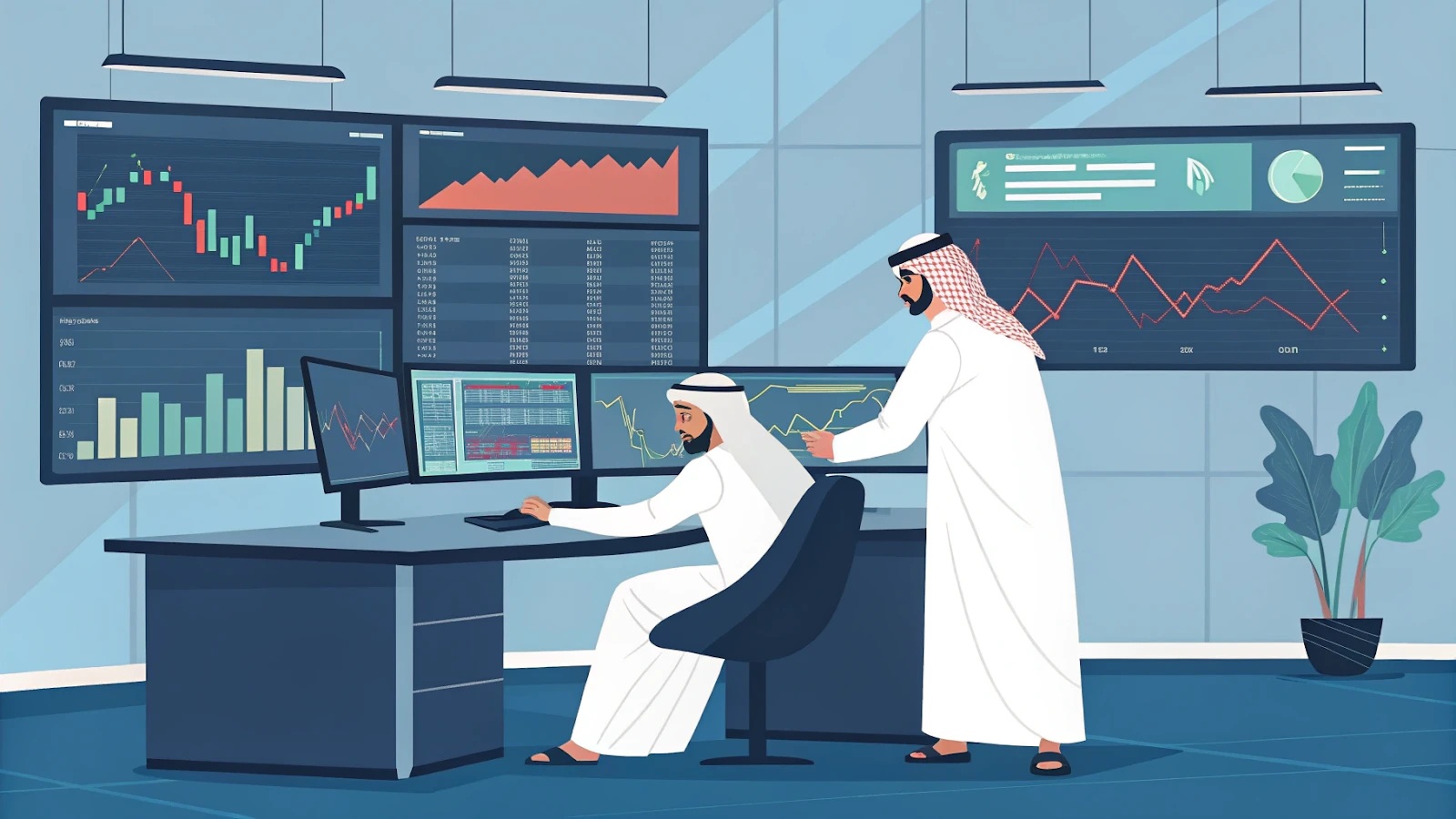
Spot Trading in Forex: Conditions for Halal
When it comes to forex, scholars generally agree on three conditions for spot trading to be halal:
Settlement Within Two Days: Currencies must be exchanged within the standard T+2 window. Longer settlement periods are not acceptable.
No Riba: Any overnight interest payments or swap charges make the transaction haram.
Real Delivery: Both currencies must actually change hands, not just exist as paper claims.
If these rules are met, spot forex can be permissible. If not, it veers into haram territory.
Spot Trading in Commodities
Commodities like gold, silver, and oil raise their own questions. Gold and silver must be exchanged hand-to-hand, which is why physical delivery or certified storage receipts are required. Oil and other non-ribawi commodities are simpler, provided settlement occurs without riba.
Spot commodity markets are widely used for trade finance, where goods are exchanged for cash in real time. As long as transactions avoid excessive speculation and respect delivery obligations, they can be halal.
Spot Trading in Equities
Spot equity markets are the simplest from an Islamic point of view. When you buy a stock on the spot market, you pay cash and receive ownership. The key is ensuring the company itself is halal. That means screening out businesses involved in alcohol, gambling, pork, conventional banking, and other prohibited sectors.
Many Islamic investors rely on Shariah-compliant equity indices or funds that do the screening for them. This ensures that their spot equity trades align with both financial goals and religious obligations.
Key Considerations When Asking Is Spot Trading Halal or Haram
Practical Guidelines for Traders
For Muslims considering spot trading, practical discipline is essential.
Always check whether the broker or exchange offers swap-free or Islamic accounts.
Avoid excessive leverage, even if offered, as it can resemble gambling.
Confirm that settlement occurs within two days for forex and immediately for gold or silver.
Use Shariah-screened indices or funds for equities to simplify compliance.
These steps transform the theoretical discussion of is spot trading halal or haram into actionable guidance for everyday investors.
Modern Challenges in Spot Trading
While spot trading seems straightforward, digitalisation introduces challenges. Cryptocurrencies, tokenised commodities, and 24-hour online forex platforms blur the lines between spot and derivatives. Scholars debate whether holding a claim on a digital wallet equates to true hand-to-hand exchange.
These issues complicate the debate around is spot trading halal or haram, showing that rulings must evolve as markets evolve. What was clear in a physical gold market centuries ago now requires reinterpretation in the age of blockchain and high-frequency trading.
Global Regulatory Perspectives
Different Muslim-majority countries take different stances on spot trading. Malaysia regulates onshore forex tightly, Dubai builds gold accounts around Shariah rulings, and Saudi Arabia integrates Shariah screening into its stock exchange. These differences reveal why the question is spot trading halal or haram is not settled universally.
Instead, it depends on jurisdiction, regulatory safeguards, and how closely markets align with Islamic finance principles. For global Muslim investors, that means research and due diligence are essential before entering any spot market.
FAQs About Is Spot Trading Halal or Haram
Q1. Is forex spot trading halal or haram?
Yes, if settlement occurs within two days, there is no interest, and actual delivery of currencies takes place. Otherwise, it can be haram.
Q2. Is gold spot trading halal or haram?
It is halal if full payment is made and ownership transfers immediately, either physically or through certified storage. Delayed settlement or leverage may render it haram.
Q3. Is equity spot trading halal or haram?
Yes, provided the shares are bought in cash markets and the underlying companies are not engaged in prohibited industries.
Conclusion
The question is spot trading halal or haram cannot be answered in one word. It depends on how trades are executed, the safeguards applied, and the intent of the trader. Spot trading can be halal when it ensures immediate exchange, avoids riba, and steers clear of speculation. It becomes haram when interest, uncertainty, or gambling-like behaviour enters the equation.
For Muslim investors, the challenge is to distinguish between the two and to choose platforms, products, and practices that align with faith. With proper guidance and compliance structures, spot trading can be part of a halal financial journey.
Disclaimer: This material is for general information purposes only and is not intended as (and should not be considered to be) financial, investment or other advice on which reliance should be placed. No opinion given in the material constitutes a recommendation by EBC or the author that any particular investment, security, transaction or investment strategy is suitable for any specific person.
